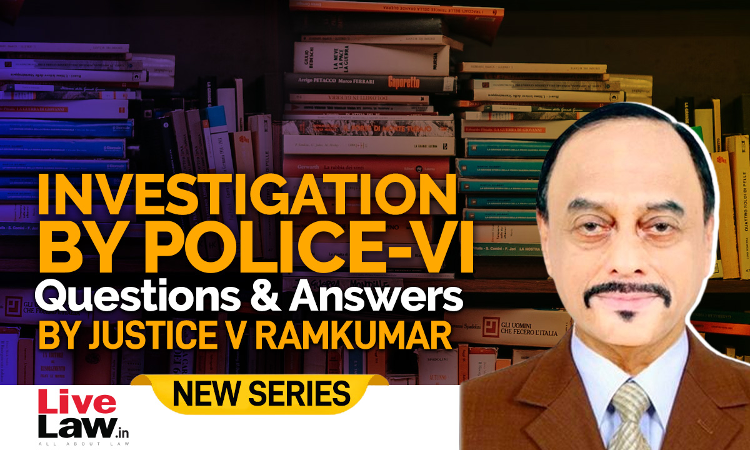Questions & Answers By Justice V. Ramkumar- Investigation By Police-PART VI
Justice V Ramkumar
17 Nov 2022 6:49 PM IST

Next Story
17 Nov 2022 6:49 PM IST
A1. INVESTIGATION BY THE POLICE – Part VIQ.26 Supposing the SHO refuses to register an FIR, what is the remedy of the informant? Ans. Supposing the SHO refuses to record the "information" received under Section 154 (1) Cr.P.C and to register an FIR, the person aggrieved may send, in writing and by post, the substance of such "information", to the Superintendent of Police of...
